Sumithra Bhakthavatsalam
AI Based Font Pair Suggestion Modelling For Graphic Design
Jan 19, 2025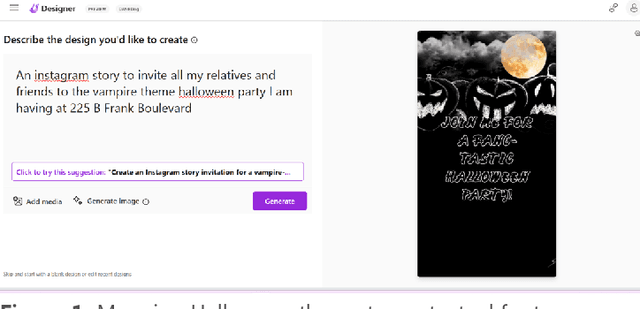
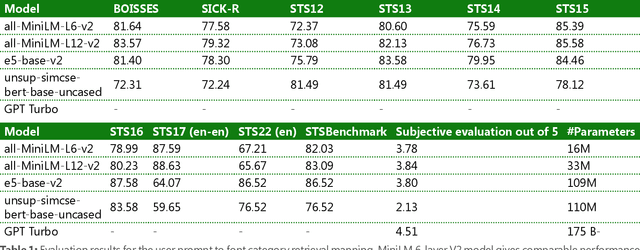
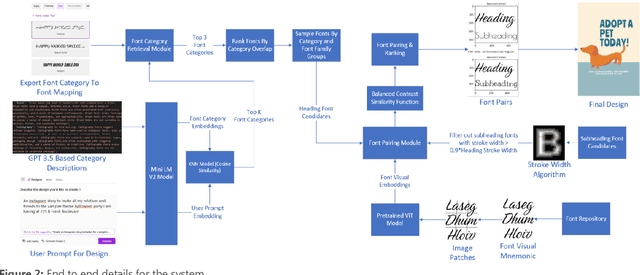
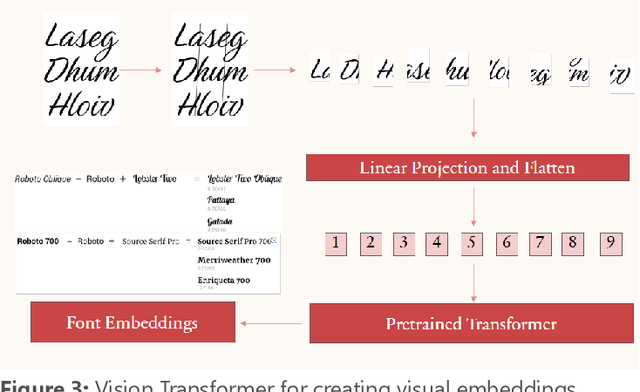
Abstract:One of the key challenges of AI generated designs in Microsoft Designer is selecting the most contextually relevant and novel fonts for the design suggestions. Previous efforts involved manually mapping design intent to fonts. Though this was high quality, this method does not scale for a large number of fonts (3000+) and numerous user intents for graphic design. In this work we create font visual embeddings, a font stroke width algorithm, a font category to font mapping dataset, an LLM-based category utilization description and a lightweight, low latency knowledge-distilled mini language model (Mini LM V2) to recommend multiple pairs of contextual heading and subheading fonts for beautiful and intuitive designs. We also utilize a weighted scoring mechanism, nearest neighbor approach and stratified sampling to rank the font pairs and bring novelty to the predictions.
Think you have Solved Direct-Answer Question Answering? Try ARC-DA, the Direct-Answer AI2 Reasoning Challenge
Feb 05, 2021
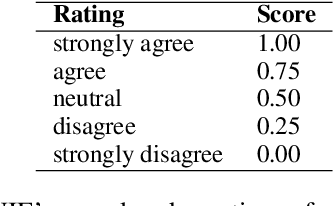
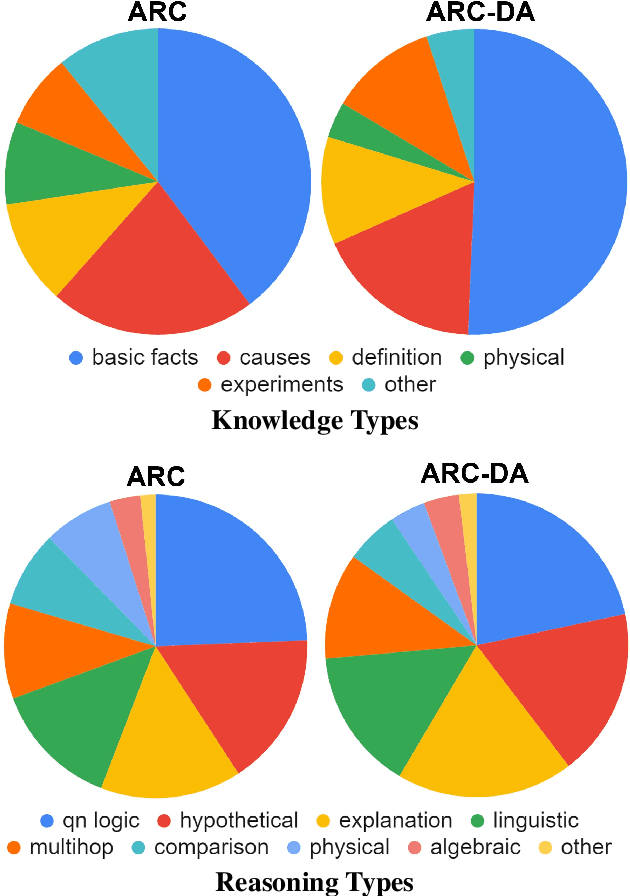

Abstract:We present the ARC-DA dataset, a direct-answer ("open response", "freeform") version of the ARC (AI2 Reasoning Challenge) multiple-choice dataset. While ARC has been influential in the community, its multiple-choice format is unrepresentative of real-world questions, and multiple choice formats can be particularly susceptible to artifacts. The ARC-DA dataset addresses these concerns by converting questions to direct-answer format using a combination of crowdsourcing and expert review. The resulting dataset contains 2985 questions with a total of 8436 valid answers (questions typically have more than one valid answer). ARC-DA is one of the first DA datasets of natural questions that often require reasoning, and where appropriate question decompositions are not evident from the questions themselves. We describe the conversion approach taken, appropriate evaluation metrics, and several strong models. Although high, the best scores (81% GENIE, 61.4% F1, 63.2% ROUGE-L) still leave considerable room for improvement. In addition, the dataset provides a natural setting for new research on explanation, as many questions require reasoning to construct answers. We hope the dataset spurs further advances in complex question-answering by the community. ARC-DA is available at https://allenai.org/data/arc-da
Do Dogs have Whiskers? A New Knowledge Base of hasPart Relations
Jun 12, 2020
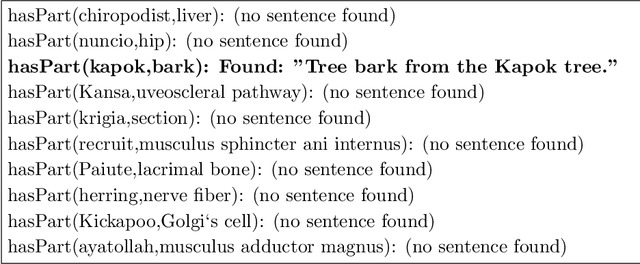
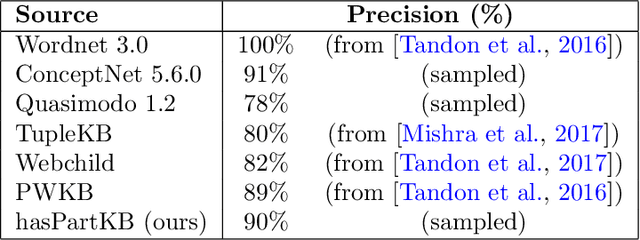
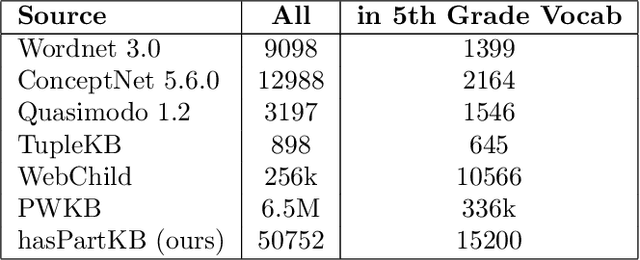
Abstract:We present a new knowledge-base of hasPart relationships, extracted from a large corpus of generic statements. Complementary to other resources available, it is the first which is all three of: accurate (90% precision), salient (covers relationships a person may mention), and has high coverage of common terms (approximated as within a 10 year old's vocabulary), as well as having several times more hasPart entries than in the popular ontologies ConceptNet and WordNet. In addition, it contains information about quantifiers, argument modifiers, and links the entities to appropriate concepts in Wikipedia and WordNet. The knowledge base is available at https://allenai.org/data/haspartkb
GenericsKB: A Knowledge Base of Generic Statements
May 02, 2020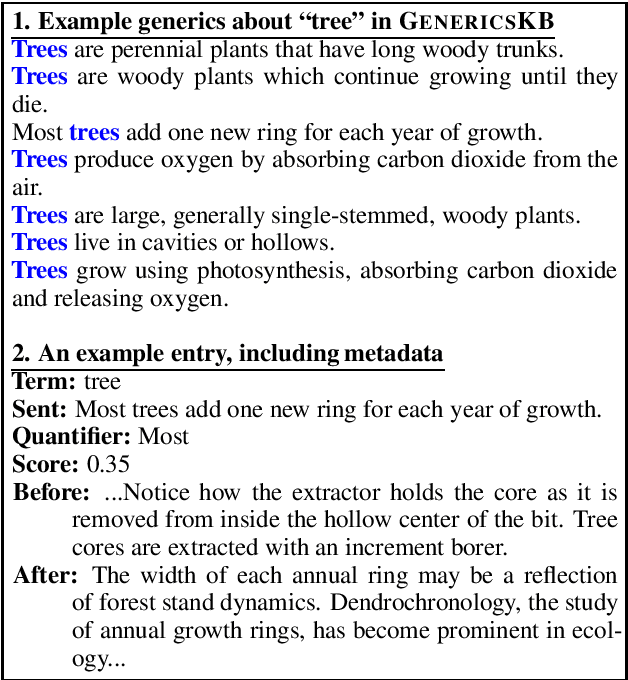

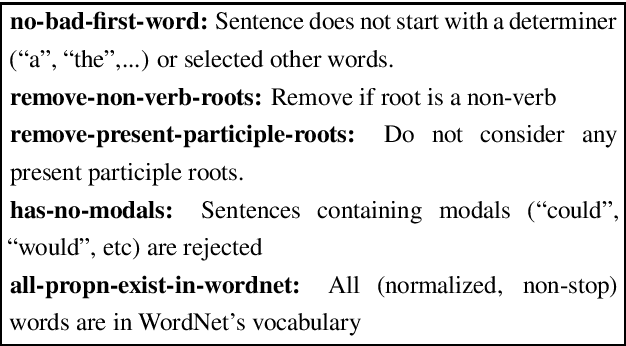

Abstract:We present a new resource for the NLP community, namely a large (3.5M+ sentence) knowledge base of *generic statements*, e.g., "Trees remove carbon dioxide from the atmosphere", collected from multiple corpora. This is the first large resource to contain *naturally occurring* generic sentences, as opposed to extracted or crowdsourced triples, and thus is rich in high-quality, general, semantically complete statements. All GenericsKB sentences are annotated with their topical term, surrounding context (sentences), and a (learned) confidence. We also release GenericsKB-Best (1M+ sentences), containing the best-quality generics in GenericsKB augmented with selected, synthesized generics from WordNet and ConceptNet. In tests on two existing datasets requiring multihop reasoning (OBQA and QASC), we find using GenericsKB can result in higher scores and better explanations than using a much larger corpus. This demonstrates that GenericsKB can be a useful resource for NLP applications, as well as providing data for linguistic studies of generics and their semantics. GenericsKB is available at https://allenai.org/data/genericskb.
From 'F' to 'A' on the N.Y. Regents Science Exams: An Overview of the Aristo Project
Sep 11, 2019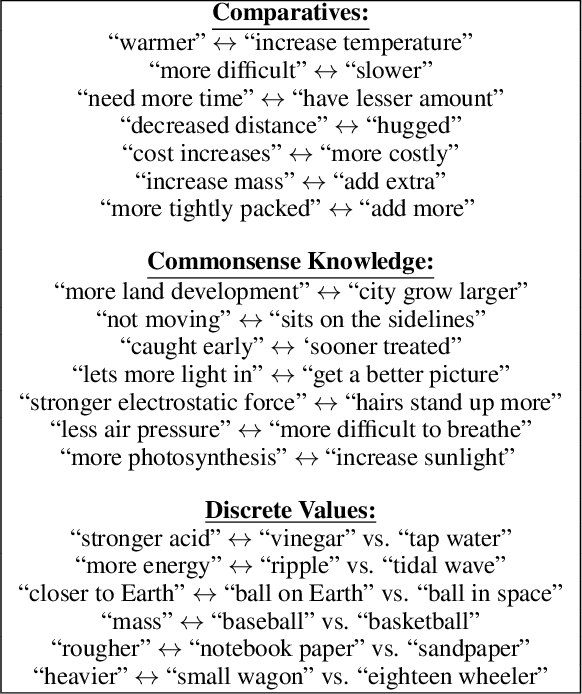
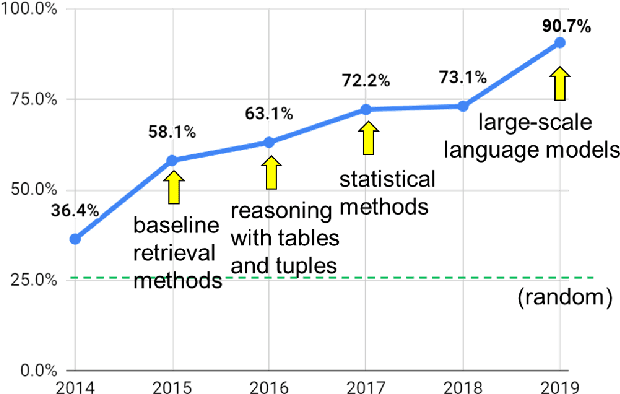

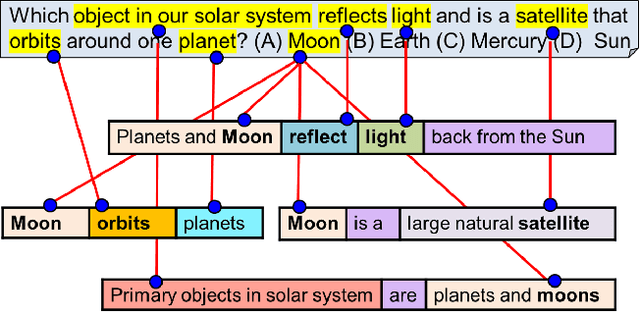
Abstract:AI has achieved remarkable mastery over games such as Chess, Go, and Poker, and even Jeopardy, but the rich variety of standardized exams has remained a landmark challenge. Even in 2016, the best AI system achieved merely 59.3% on an 8th Grade science exam challenge. This paper reports unprecedented success on the Grade 8 New York Regents Science Exam, where for the first time a system scores more than 90% on the exam's non-diagram, multiple choice (NDMC) questions. In addition, our Aristo system, building upon the success of recent language models, exceeded 83% on the corresponding Grade 12 Science Exam NDMC questions. The results, on unseen test questions, are robust across different test years and different variations of this kind of test. They demonstrate that modern NLP methods can result in mastery on this task. While not a full solution to general question-answering (the questions are multiple choice, and the domain is restricted to 8th Grade science), it represents a significant milestone for the field.
 Add to Chrome
Add to Chrome Add to Firefox
Add to Firefox Add to Edge
Add to Edge